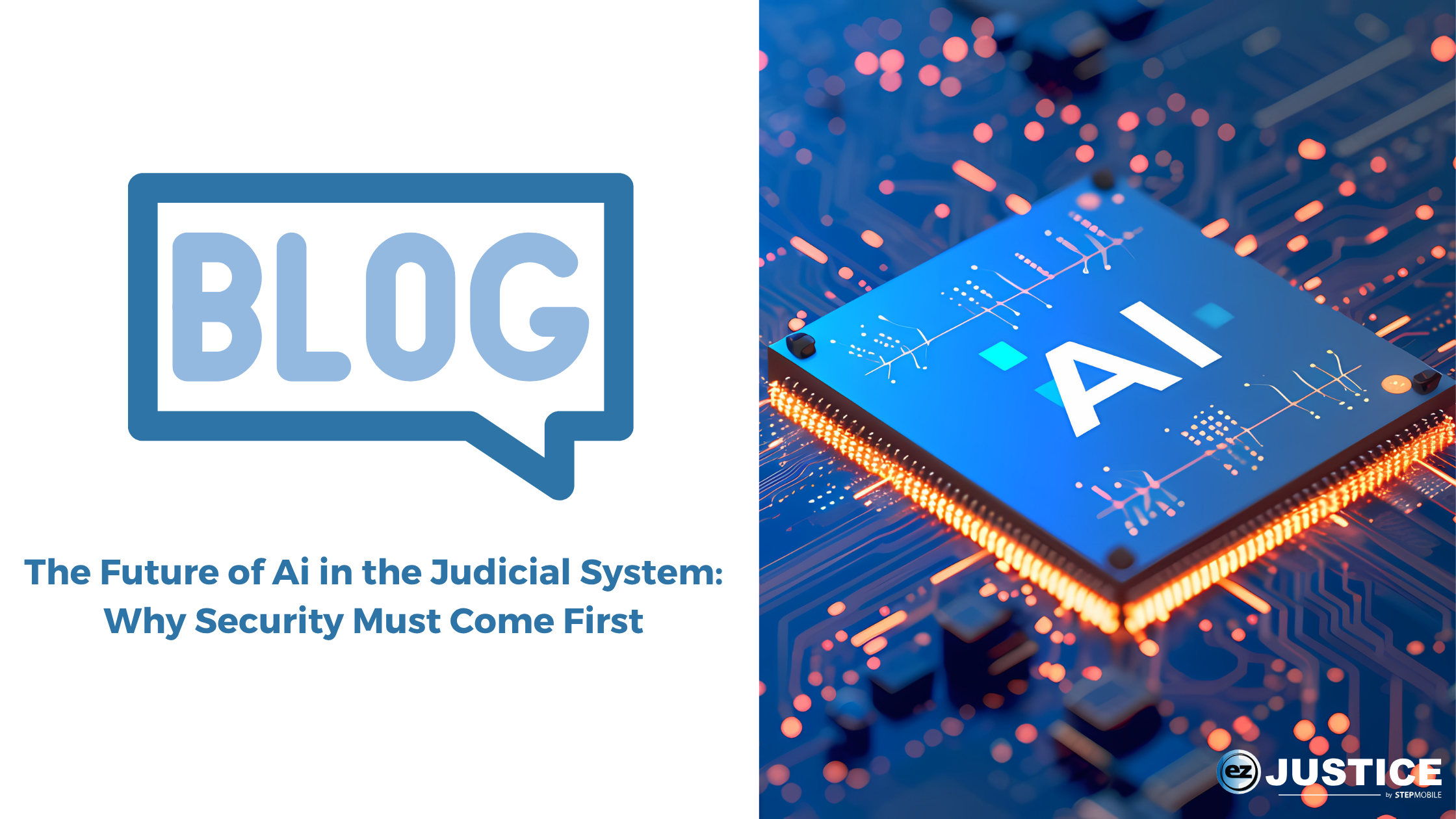2 min read
The Future of Ai in the Judicial System: Why Security Must Come First
Lauren Thompson : Oct 15, 2025 4:16:44 PM

Artificial intelligence is transforming industries across the world — and the judicial system is no exception. From automating administrative tasks to analyzing case data and predicting workloads, Ai has the potential to save courts thousands of hours each year. But as promising as these technologies are, there’s one factor that cannot be overlooked: data security.
The Power of Ai in the Court System
In a world where court staff are juggling outdated software, overburdened caseloads, and mounting administrative tasks, Ai offers a way to work smarter — not harder. Properly implemented, Ai can:
-
Summarize case notes and reports for staff
-
Automate repetitive data entry and documentation
-
Identify trends across cases for better decision-making
-
Generate quick insights to assist with workload distribution and compliance tracking
However, these capabilities are only as good as the systems that support them. And that’s where many public Ai tools fall short.
The Risks of Public Ai Platforms
While free or public Ai tools (like ChatGPT or Google’s Gemini) are powerful, they were not built for sensitive judicial data. When you input information into a public Ai, that data may be stored, used for model training, or even shared across systems you don’t control.
For courts, probation departments, and justice agencies — this is a major red flag. Sensitive case information, personal identifiers, or victim data must never leave the protection of your internal network.
That’s why relying on public Ai tools poses serious risks, including:
-
Data exposure: Information can be accessed, cached, or reused outside your system.
-
Compliance violations: Potential breaches of CJIS or local data governance policies.
-
Loss of control: You can’t audit or restrict how public Ai systems handle your data.
In short — public Ai may be convenient, but it’s not compliant with the standards required in the justice system.
The Path Forward: Secure Ai Within the Justice Ecosystem
To safely harness Ai’s benefits, the justice system needs private Ai solutions built within secure platforms — where all data remains under the court’s control.
That’s exactly what we’re building at ezJustice with ezAi, our private Ai Cloud platform. Launching in 2026, ezAi is being designed exclusively for justice professionals, offering intelligent automation that operates entirely within the ezJustice environment.
That means:
-
No data leaves your system.
-
No public training models.
-
Full compliance with your court’s security and privacy policies.
Ai should make your work easier — not riskier. With the right infrastructure, courts can benefit from smarter workflows, more accurate data analysis, and greater efficiency — all while maintaining the integrity and confidentiality that justice demands.
Building a Future You Can Trust
The judicial system has always balanced innovation with caution — and Ai should be no different. By prioritizing security, compliance, and transparency, courts can embrace modern technology without compromising their core mission: delivering fair and protected justice for all.
The future of Ai in justice is bright — but only if it’s secure.
Ready to learn more about secure Ai for courts?
Visit ezJustice.us to see how we’re modernizing court technology — safely, intelligently, and with your data protected every step of the way.
